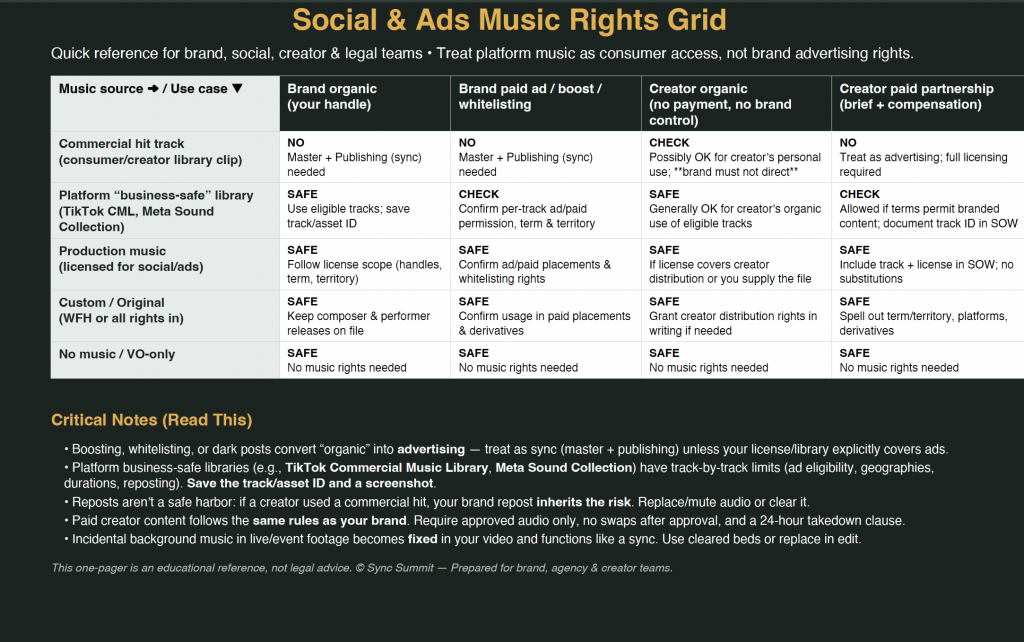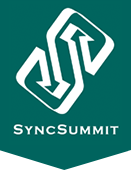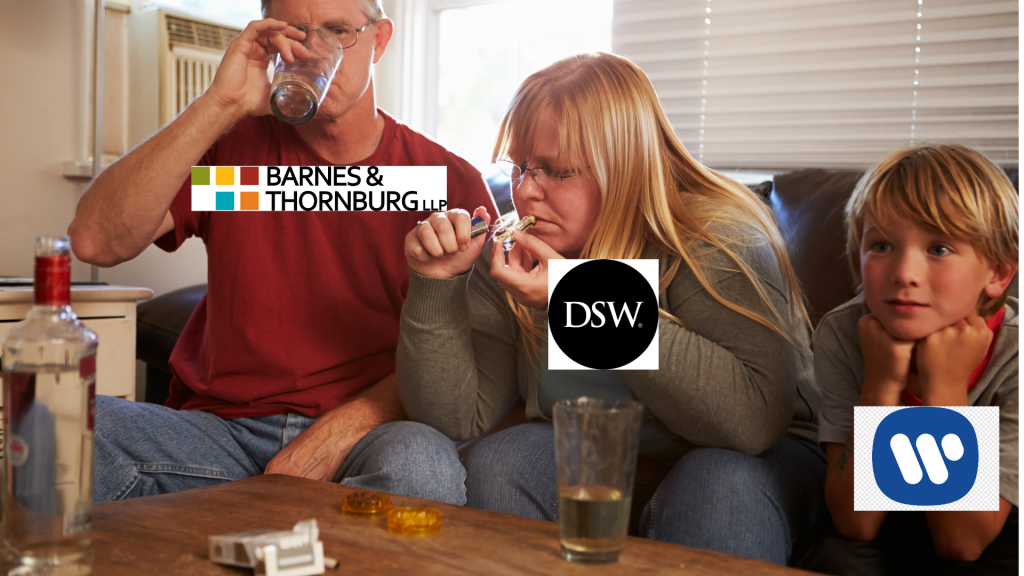DSW’s idea of music copyright law is a hot mess.
I’ve been watching this slow moving trainwreck over the past few months, and it went from what looked like a N00b misunderstanding of IP law on DSW’s social team’s part to the filing of a counterclaim against the IP owner (Warner Music Group) based on an outrageous interpretation of Meta’s and TikTok’s terms of service that seems to be the product of the postulations of arrogant crackheads and their craven out for a buck legal team who honestly should know better.
I feel like the initial conversation between DSW and it’s lawyers went down something like this Jerky Boys skit:
In all seriousness, let me break all this down for you, and then make some conclusions and provide brands and agencies with some friendly advice to help them avoid the pitfalls DSW’s flawed thinking and actions.
Step One: Warner Sues DSW for IP Infringement
In early May 2025, Warner Music Group (WMG) sued DSW Designer Shoe Warehouse (and parent Designer Brands Inc.) in federal court, alleging the retailer used more than 200 Warner-controlled recordings and compositions in TikTok and Instagram marketing—often in paid influencer posts—without proper licenses. Warner’s complaint seeks statutory damages (potentially up to $150,000 per work), making this a high-exposure case for a series of short-form posts. Music Connection Magazine
Step Two: DSW Responds, Reaches for the Pipe and Countersues
Instead of realizing the error of their actions and quietly settling, DSW pushed back by challenging the foundations of IP law and the structure of the deals Meta and TikTok have with the major labels allowing Meta/TikTok users to include major label content in their videos.
Specifically, In July 2025, DSW filed a separate declaratory-judgment action asking a court to confirm that its uses are covered by TikTok’s and Instagram’s platform licenses—or that DSW counts as a third-party beneficiary of those deals. DSW also sought protection against similar claims from the other majors (UMG, Sony, BMG), signalling that this isn’t just about Warner. Music Business Worldwide.
Basically, DSW’s reply to Warner is, ummmm, well, I’m not wrong, you’re wrong… SUE EVERYBODY!!!
So why do I Say DSW on Crack?
Simple. Instead of editorializing, I’ll let the Terms of Service from Meta and TikTok do the talking for me:
META: (full terms are here: https://www.facebook.com/legal/music_guidelines)
“Use of music for commercial or non-personal purposes in particular is prohibited unless you have obtained appropriate licences.”
TikTok: (full terms are here: https://www.tiktok.com/legal/page/global/music-terms-eea/en)
“Unless you’ve selected a sound from our list of Commercial Sounds (FYI, no WMG/UMG or SMG Music used by DSW is in the Commercial Sounds Library), music should only be used for personal, non-commercial purposes.
Any other use of music to sponsor, promote, co-brand or advertise or in a way that creates an association between the music and a brand, product, good or service is prohibited unless you have obtained separate permissions and all necessary rights.”
That’s pretty freaking clear, isn’t it?
Use music for commercial purposes, pay for commercial licenses, you bunch of crackheads.
The fact that DSW’s C-Suite, General Counsel and their law firm, Barnes and Thornburg excreted this unfortunate Complaint for a Declaratory Judgement on the bench of the judge adjudicating this case is patently scatalogic.
More seriously, all I can say is good luck DSW, because you’ve just spent a bunch of money on legal fees you’ll now have to tack onto the fees you’ll have to pay WMG for using their IP with no benefit to you whatsoever.
Music IP for Social Media Marketing 101
Moving on from the DSW debacle, why is it important for brands and agencies to secure commercial licenses for all types of music usage in their social media campaigns?
- Influencer programs and paid partnerships are commercial usage. If creators tag your brand, use your product, or are paid, their use of commercial tracks can still implicate you, especially if their posing arodun your brand is part of a paid partnership. Warner’s complaint flags paid partnerships specifically. Kohl & Cook Law Firm LLC
- Damages scale fast. With hundreds of alleged uses, statutory damages can multiply quickly, which is why social music cases are becoming seven – and eight-figure problems. thebriefing.blubrry.net
- Platform deals ≠ brand sync licenses. As shown earlier, TikTok and Meta label/publisher agreements, don’t extend to commercial use of music, especially when posts resemble ads. Bloomberg Law’s analysis notes DSW faces “tough odds” on that theory. Bloomberg Law
Some proposed best practices for brand and agencies in social media music usage:
- Treat social media music usage they same way you would other forms of media, not as some sort of gray zone. If you’re marketing (owned, paid, or influencer) something using someone’s music, it’s a commercial usage and you need a license for both master and publishing rights—even for short clips.
- Tighten music usage terms in your social media influencer contracts. Require creators to use pre-cleared music, library cues, or platform tools explicitly approved for brand use or work with them to clear licenses for the usage of specific music for your campaigns; include indemnities and a takedown protocol.
- Build an internal catalog and list of songs for your social media campaigns that are ready for usage. Maintain a go-to set of cleared tracks (production music, custom cues, or direct licenses) for Reels/TikTok/Snap/etc. that can be used by anyone working on your social media campaigns. You can license these directly from artists, labels, publishers and other third parties with minimal effort
- Audit historic posts – this is super important. If you’ve used trending songs on official brand handles, especially in campaigns or with paid creators, inventory and replace or clear as needed before you get a demand letter.
- Plan for jurisdiction. These cases are landing in federal court and can rope in multiple rights owners. DSW’s parallel filing against UMG, Sony, and BMG shows how quickly a single dispute can widen.
- Hire a music licensing expert. This is your best course of action. Hiring me (feel free to contact me at mark@syncsummit.com or +1 646 301 0277) is the best way to not only simply and successfully navigate music licesning for social media, but I can also help you connect with great people that have and/or can create great music for any purpose at any budget.
And One More Thing.
I’ve created a visual aid for brands and agencies to use to quickly assess whether or not you need a license for music used in your campaign. Feel free to screenshot it, download it and display it prominently.




